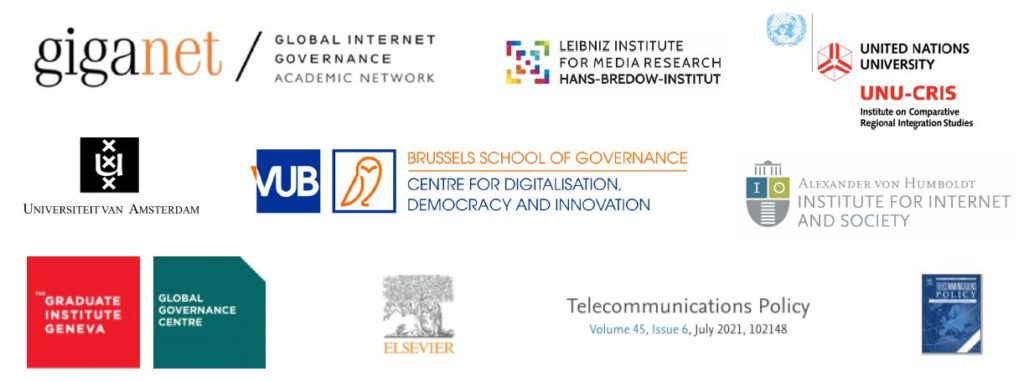GigaNet – the Global Internet Governance Academic Network – is now accepting extended abstracts for papers to be presented at its annual symposium. As of now, GigaNet 2022 is planned to be held alongside the United Nations Internet Governance Forum (IGF), which is held in a hybrid format in Addis Ababa, Ethiopia from 28 November to 2 December 2022. For the time being, the GigaNet symposium is planned as a virtual event on Day 0 of the IGF.
Papers on any Internet/digital governance-related topic are welcome. Multidisciplinary and interdisciplinary approaches are encouraged. There will be the possibility of a focused subset of accepted papers to be fast-tracked for publication in a relevant journal. In the last two years, selected papers presented at the conference were invited for a dedicated special issue of Telecommunications Policy.
Welcome topics for this year’s symposium include, but are not limited to:
Internet Governance as a field of study
- Narratives, myths and frictions in the construction of the Internet governance field
- Internet governance cultures and power dynamics
- Theoretical innovations and new methods applicable to Internet governance research
The evolution of Internet governance, institutions, and norms in the areas of:
- Internet standards and protocols
- Internet infrastructure
- Platform governance
- Cybersecurity
- Governance of data streams
- Digital rights online
Future-oriented Internet research agenda
- Emerging topics in Internet governance (e.g. environment)
- Digital sovereignty
- Interdisciplinary perspectives on the governance of new technologies (Internet of Things, Artificial Intelligence, virtual currencies), etc.
- Fragmentation of the Internet
Internet Governance during the pandemic:
- New challenges and opportunities of digitalization
- Health governance & COVID-tracing apps
- Freedoms, rights and limitations
- Internet governance and emergency preparedness
Internet governance at a time of war:
- Online harms, cyberattacks and accountability
- Connectivity and access to information
- Cyber operations and sanctions
- Neutrality in the cyber domain
- Applicability of international law
- Role of international bodies and/or public-private partnerships
GigaNet is oriented around the presentation of research papers. The proposed extended abstract should be 800-1000 words long (excluding bibliography) and must describe:
1. Research question(s),
2. Data used,
3. Methodology, and
4. Main (expected) findings of the paper,
5. Contributions to literature and/or ongoing policy debates.
Theoretical papers need not specify the data used but must have a clear research question and statement of the specific theories used and literature in which the analysis is situated.
The extended abstract must be uploaded to the Easychair website by 10 July 2022, 23.59h (in the submitter’s timezone).
Reviews of individual abstracts will be double blinded. Please do not include names or any other personally identifiable information on the uploaded file or in the text of the submission itself on the EasyChair platform. (The platform records the author name(s) and contact information: the program committee chair will be able to see that information.)
Full papers should only be submitted upon invitation, following the selection of abstracts. While multiple submissions by the same author(s) are allowed, there can only be one presentation per author.
GigaNet encourages emerging scholars and researchers working with diverse methodologies to submit their work to the symposium. Proposals should be submitted in English. Participation in the GigaNet symposium is free of charge.
Important dates:
Extended abstracts submission: 10 July
Notification to authors of acceptances/rejections: 31 August
Accepted authors confirm attendance: 10 September
Full papers due: 15 October
GigaNet Symposium: end of November (date tbc)
—–
GigaNet is an international association of academic researchers founded in 2006 to support multidisciplinary research on Internet governance. Its membership includes researchers from all over the world who are contributing to local, national, regional, and international debates on Internet governance. More information on GigaNet’s organizational structures and activities can be found on its website at https://www.giga-net.org.

